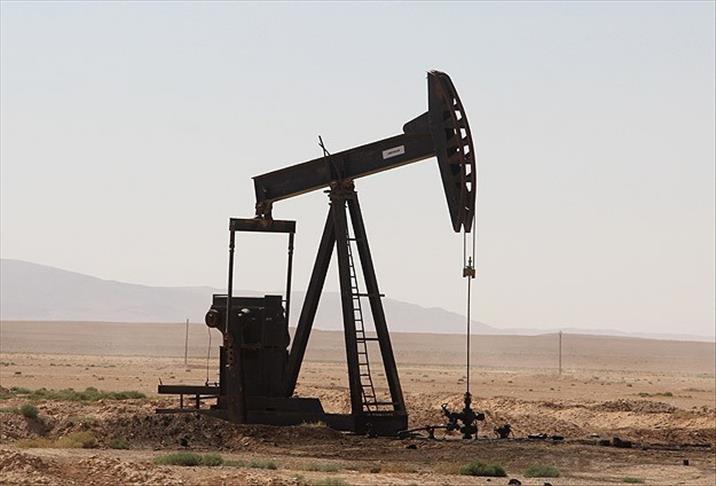Brazil's oil and gas policies souring investment
Industry group sends letter to presidential candidates complaining of unpredictable and interventionist policies

By Lucy Jordan
BRASÍLIA, Brazil
Brazil’s most important oil and gas trade group has warned that the country’s oil industry risks being marginalized by investors in favor of more open and predictable economies like Mexico.
The Brazilian Petroleum Institute, or IBP, on Monday delivered a letter to candidates campaigning for the Oct. 5 presidential election outlining policies it would like to see reformed.
The IBP said that the letter addressed various issues that put off potential investors and hinder development, such as predictability. It asked that the oil and gas regulatory agency, the ANP, draw up a fixed schedule for oil and gas exploration auctions so that investors can plan ahead.
Industry representatives have often complained that investors are put off by unpredictability in the energy sector. Although Brazil held three auctions for exploratory blocks in the past year, they came after a five-year hiatus, and future bidding rounds have not been scheduled with much notice. Marcos Almeida, executive secretary of the Ministry of Mines and Energy told reporters Monday that the next auction would be held during the first quarter of 2015.
The energy industry would also benefit from predictability of fuel pricing. President Dilma Rousseff’s administration has kept domestic gasoline and diesel prices capped artificially low, in an attempt to ward off inflation, with little transparency about if and when they will be raised.
As demand for fuel rises, and exceeds the capacity of Brazilian refineries, Petrobras - as the country’s only legal fuel importer - must import fuel to keep up with demand, but sell it domestically at a loss. Much of Petrobras’ mountain of debt can be attributed to this single government policy. Furthermore, as Petrobras dominates the industry, when it is stretched thin, consequences ripple throughout the industry.
“One of the most important companies in Brazil, Petrobras, and the entire line of production from suppliers to parts, to maintenance, refineries, everything has been terrorised by this policy'', said Marcos Troyjo, director of the BRICLab at Columbia University. “Not only because prices are being held down to avoid inflation but since there is such an important element of politics in Petrobras, and the election cycle has not been completed so people just don’t know what to expect over the next four years.”
The letter also asks that the candidates reconsider the current “local content” laws. Aimed at creating jobs and building capacity within the oil services industry, these rules dictate that a certain fraction of goods and services in oil production must be provided by Brazilian companies.
Critics say the rules have slowed development, as Brazilian companies do not always have enough skilled employees or equipment to comply.
Marina Silva, candidate for the Brazilian Socialist Party who is presenting a tough challenge to incumbent Rousseff, has said that she will consider reforming the local content laws, and raising fuel prices.
But government sources have also indicated that if Rousseff were to be re-elected, a fuel price raise would come immediately after the vote. Joao Castro Neves, Senior Latin America analyst for the Eurasia Group, told Anadolu Agency that a second Rousseff administration would likely be forced to reconsider the local content laws to offer some relief to Petrobras.
“I think that for current contracts they would see what they can do to give room for companies that have not met the requirements, because there is a round of fines that need to be levied and a chunk of these will go to Petrobras,” he said. “There will have to be a discussion.”
Promises made by either side should be taken with a pinch of salt, Castro Neves added.
“The next government, whoever wins, will have limitations, constricted room to maneuver,” he said. “My overall view is that an opposition would be better than Rousseff for the oil industry, but probably not game changing.”
The oil and gas industry has been thrust further into the spotlight during the election cycle due to the emergence of a corruption scandal that allegedly saw some 40 politicians - including members of Rousseff’s party and at least one of her ministers - taking kickbacks from Petrobras contracts in return for congressional votes.
Silva has been quick to try to capitalize on the scandal, repeatedly bringing it up in her speeches and promising to root out graft if she is elected.
But recent polls, which show Rousseff gaining some ground, suggest that much of the public is less concerned by yet another corruption scandal, as by the suggestion that Silva would perhaps pay insufficient attention to Brazil’s ample pre-salt oil reserves.
An avowed environmentalist who cut her political teeth campaigning in the Amazon with murdered activist Chico Mendes, Silva is keen to increase the share of renewables like wind and solar power in Brazil’s energy matrix.
Representatives of Rousseff’s Workers’ Party (PT) jumped on the fact that a campaign manifesto released by Silva had little mention of the pre-salt, pushing Silva to publicly avow to continue putting pre-salt exploration front and center.
Anadolu Agency website contains only a portion of the news stories offered to subscribers in the AA News Broadcasting System (HAS), and in summarized form. Please contact us for subscription options.

